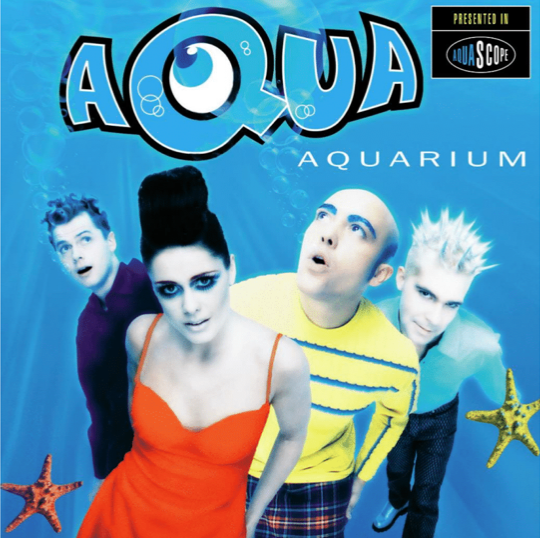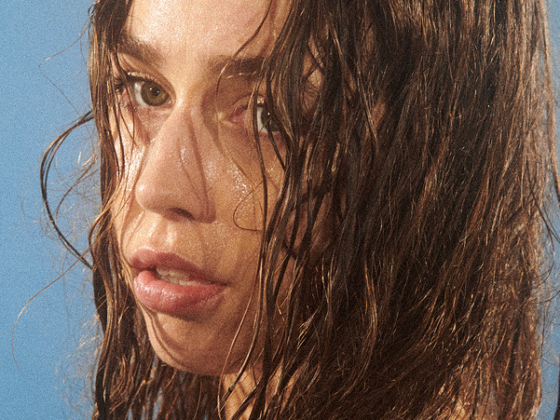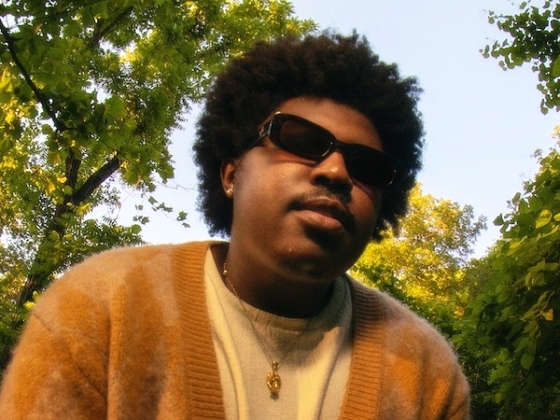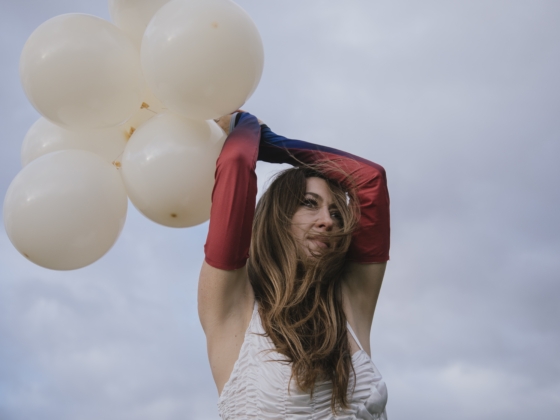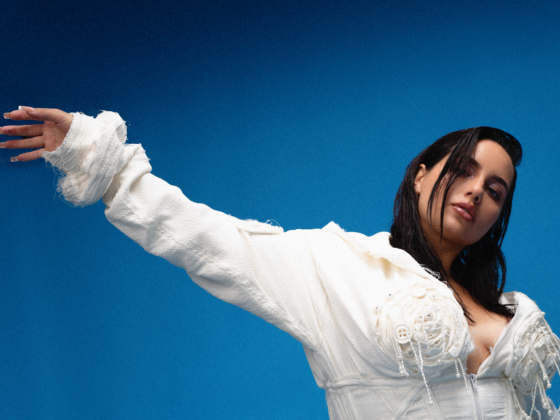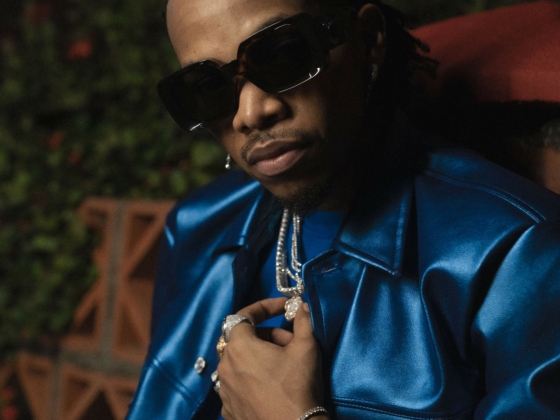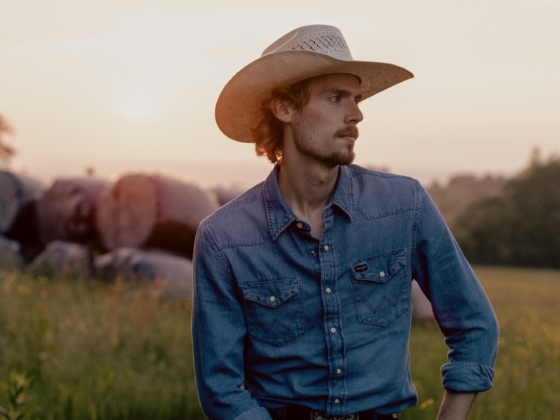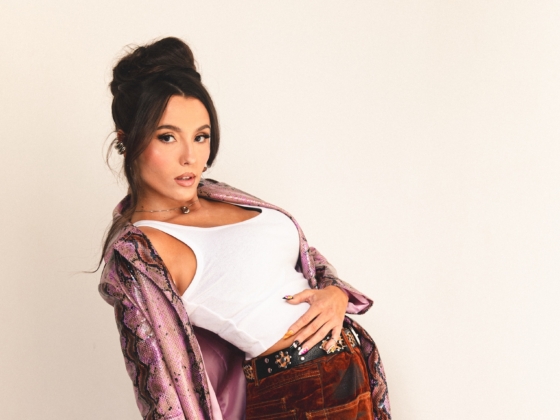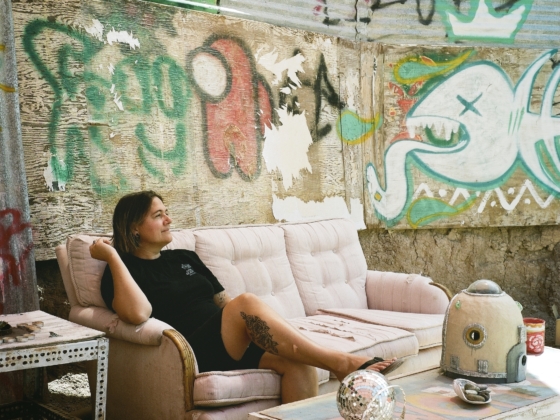If you grew up in the 90s, chances are you’ve danced along vibrant pop song “Barbie Girl,” at least once in your life!
Now, the Danish-Norwegian pop icons Aqua mark 25 years of their debut album Aquarium, which featured the instant classic among other hits such as “Turn Back Time,” and “Doctor Jones,” with a digital re-issue that continues to encapsulate the hit-making capabilities of the band featuring Rene Dif, Lene Nystrøm, Søren Rasted and Claus Noreen.
Speaking to Earmilk, the legendary band take us back in time to the moment they realised the impact of “Barbie Girl,” how they’ve evolved since the release of their debut project in 1997 and what’s still on their musical bucket list, among much more.
- "Barbie Girl" was pretty much one of the first songs I started playing on loop since the age I could sing and dance. Surely the smash hit had a similar impact on several people – when was the first time you realized the influence the song had on people?
Lene: When we made it!
Rene: We immediately knew that we had something really good, but I remember we were just as surprised as everyone else that is was so massive and so huge. We named it several different things in the beginning because we were nervous someone would get the same idea as we did. I don’t specifically remember when we realized it but when things really started speeding up for Aqua it was because of that song.
Søren: I remember when we were in the studio and had done the first recording and Johnny Jam had played it for his wife that he came back and told us that it was the first time he had come home with a song she wanted to hear again and again. And the other time I remember was Niclas Anker, our record label guy, he had played it for C100 – a radio station in New York and they thought it was wild. And then I though “wow, if they think so, I believe others would too”.
- What do you personally think it was about that track that attracted the love of so many people?
Rene: We looked so good all of us
Lene: It is an extremely generically written pop track. Everything just fits well; the melodies and the images you get in your head. It is so catchy.
Søren: It is very pink in the production and the look and everything. It fits well together.
Lene: And then on top of that came the video. There are so many layers.
Rene: The video was made in a completely new way of making videos. We came from a time where everything should be dark or singer-songwriting-ish, don’t get me wrong. But then came the video with powerful colors and it really couldn’t get any more pop and I think people connected to that quickly because of the time it was.
Lene: Kids took it very literally and adults understand the tongue and cheek irony. So, it was a bit of everything.
- The juxtaposition of the playful music and very not child-friendly lyrics on the track has always been amusing to me. Has there ever been moments in your life where a lyric of any song you were jamming to had a completely different meaning that you didn’t realize?
Søren: Yes, many.
Lene: I think all of us has those experiences all the time. We suddenly realize what songs are really about and what lyrics really mean. But one track….that’s difficult.
Søren: I have experienced that with thousands of tracks.
- On the 25th anniversary of your debut album, when you look back and trace your sonics, how would you say you’ve evolved?
Lene: Did we even evolve?!
Rene: I would say, from when we started and didn’t have the opportunity to play live a lot, we have – and now I’m speaking for myself, I think we’ve become the best 90’s band when it comes to live and performance. So that’s a place where we really have developed, I think. We have found our space in the crowd.
Søren: But I mean, 25 years is so much. I don’t even remember who we were 25 years ago. But how we developed… it’s not like we’ve developed into a new direction, I think we’ve stuck to what we did in the beginning without just standing still.
Lene: I also think you can turn it around and look at how we’re playing so much live as we do now, and we love it. We get to travel and to on stage with the music family we are, and we get to do all the things we find fun. I think our engagement in the live and performance part is so much larger now.
Rene: We’ve just become so much better at everything. We started with bongo drums and keyboard and now we’re touring with a large band who we’ve played with for so many years now. So that’s a part where we’ve developed.
Lene: But we’re just as passioned as we’ve always been. And just as humble!
- In terms of song writing, where does inspiration come from? Is it from personal experience or from stories around you?
Søren: That’s difficult to answer. It’s always so different.
Lene: If you think about it, it’s really mixed.
Søren: Everything emerges in different ways.
- Speaking of the album, we’ve spoken plenty about “Barbie Girl” but what other songs from the album are your personal favorite and why?
Rene: I think every song has its charm and its energy. Maybe I think, if not Barbie Girl, it would be Dr Doctor or Lollipop. Lollipop is because it has a bit more stomp about it or at least in another way.
Lene: I would say Turn Back Time because when it was released it created another moment than what we’ve been though on the other singles. It was a dark horse compared to all the bubble gum music we’ve released before, and we were so proud of that. It’s a good breathing room in concerts when it comes, and it means a lot for people and for us. It’s a good moment and a really well-written song.
Søren: Yes, I agree. That one or Be A Man I really like. But especially Turn Back Time. It was so close to not even get on the album. When we must choose the songs for the album it was so close to didn’t make the cut so that was really fun. Suddenly it was number one.
Rene: In hindsight I don’t think anyone had seen it coming from us. Not even ourselves. I really liked the song, but I didn’t think it would become a number one in England for instance.
Lene: Many people thought of us as one hit wonders even though we have had more number one singles. But when this one came it changed the landscape for us.
Rene: To all of the non-believers if you can say it like that (laughing). They could sit back and be like “wow they’re not all party and goofing around, we didn’t see that coming”. Neither did we though.
- When listeners tune into Aqua’s music what message do you hope for them to take away from it?
Rene: We hope they have a positive experience.
Lene: Yes, that people listening to Aqua is people looking for a good time.
- What’s been the most surreal moment of your career so far and what’s on your bucket list for the future?
Lene: I think the most surreal moment hasn’t happened yet. Ah I don’t know. There are so many and it’s so difficult to answer. There is something about the community we have when we’re going somewhere or entering the stage, the cohesion we have it’s like seeing Armageddon in slow motion walking towards the spaceship – there’s nothing that can touch us or bring us down. That’s just an amazing feeling what we have together.
Søren: I also think walking on stage is a surreal feeling on its own. In some way it has been 25 years with non-stop surreal moments. It even seems more and more surreal the older you get.
Lene: And the bucket list; burning man!
Rene: For sure! Will be difficult though.
Lene: We really dream of playing Coachella. We began talking serious about Coachella and then came Corona.
Rene: If we could perform 14 days every, maybe every other day, full power in Vegas that would also be on my bucket list 100%. Driving down The Strip. Could be so cool.
Søren: You wouldn’t be able to handle that!
Connect with Aqua : Instagram

